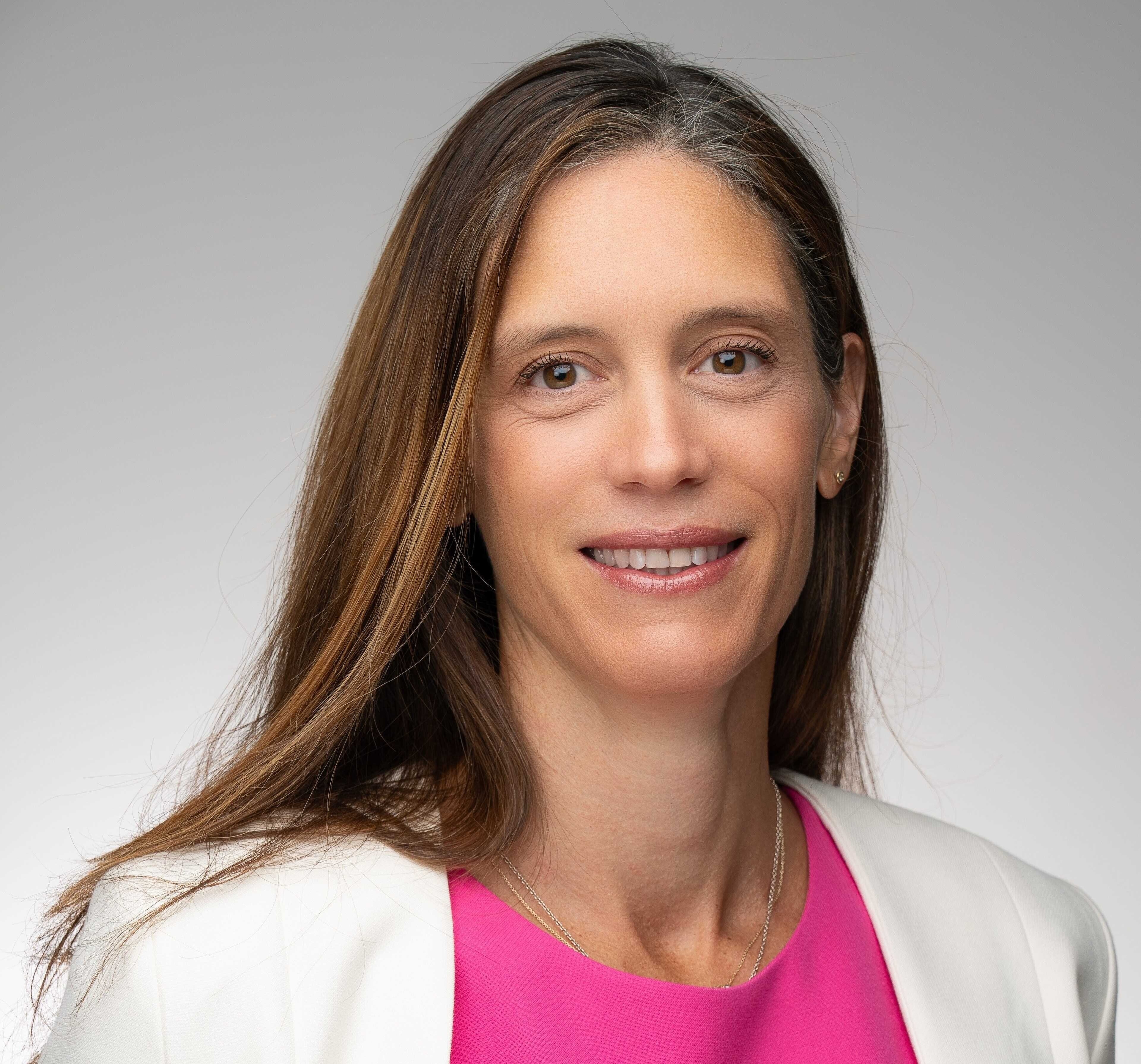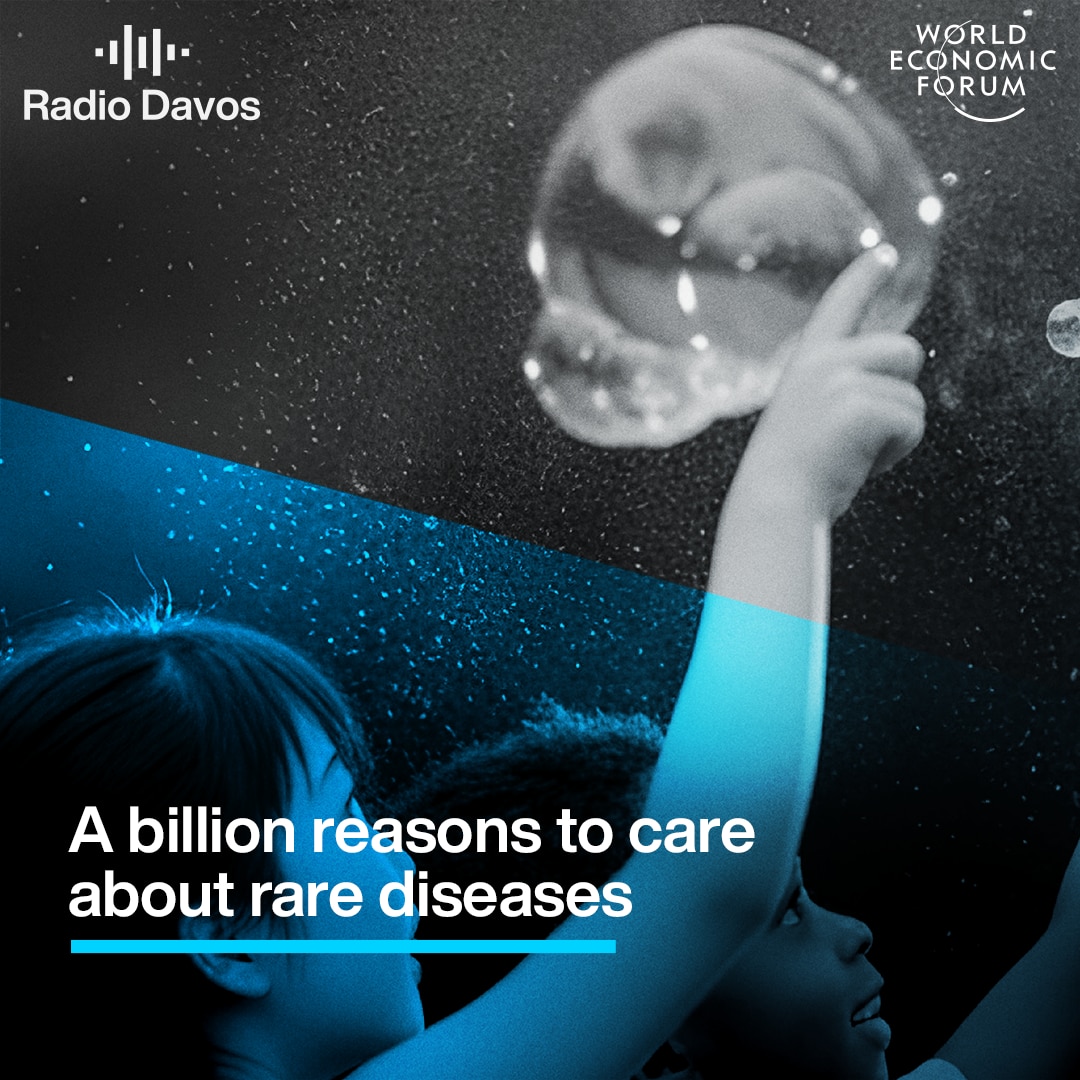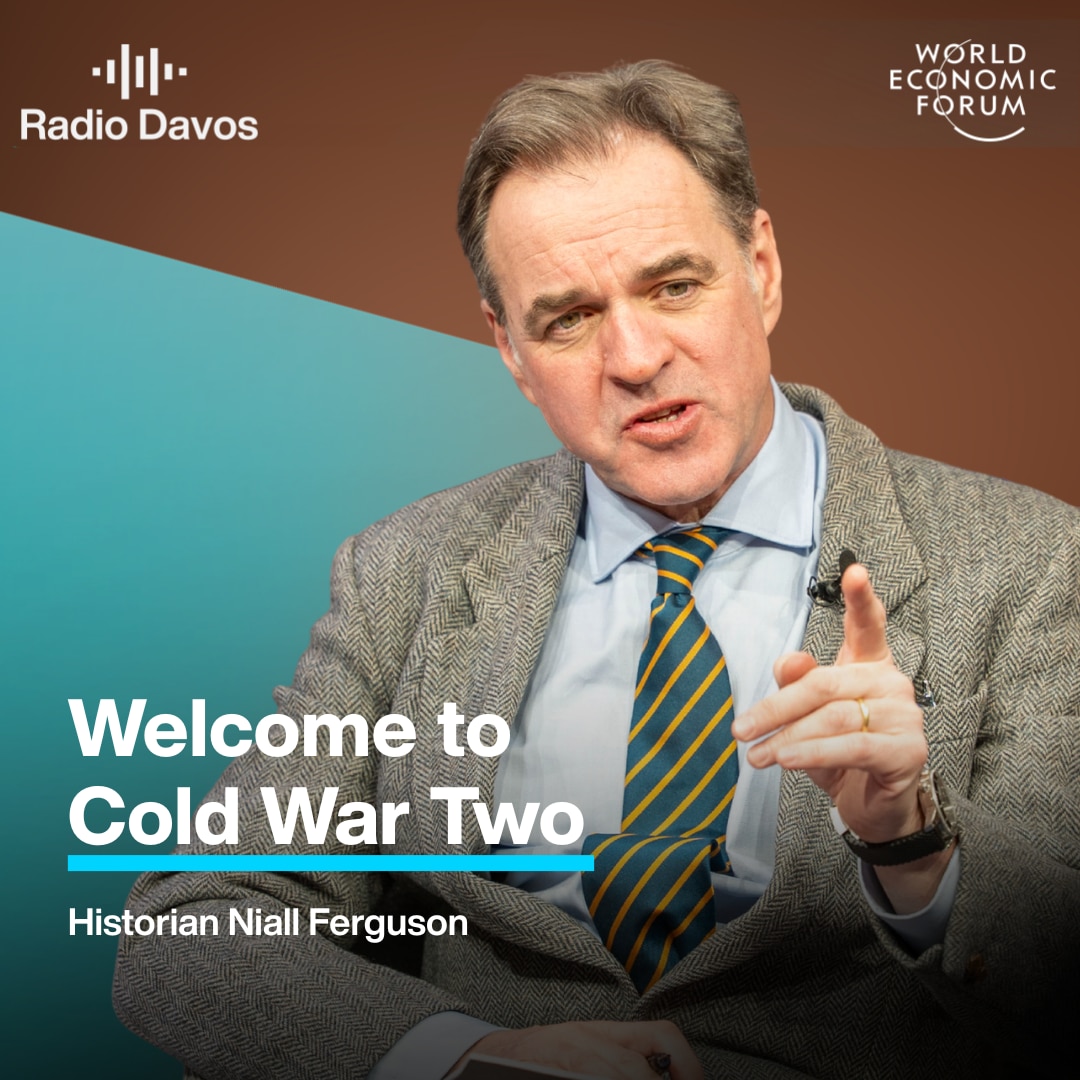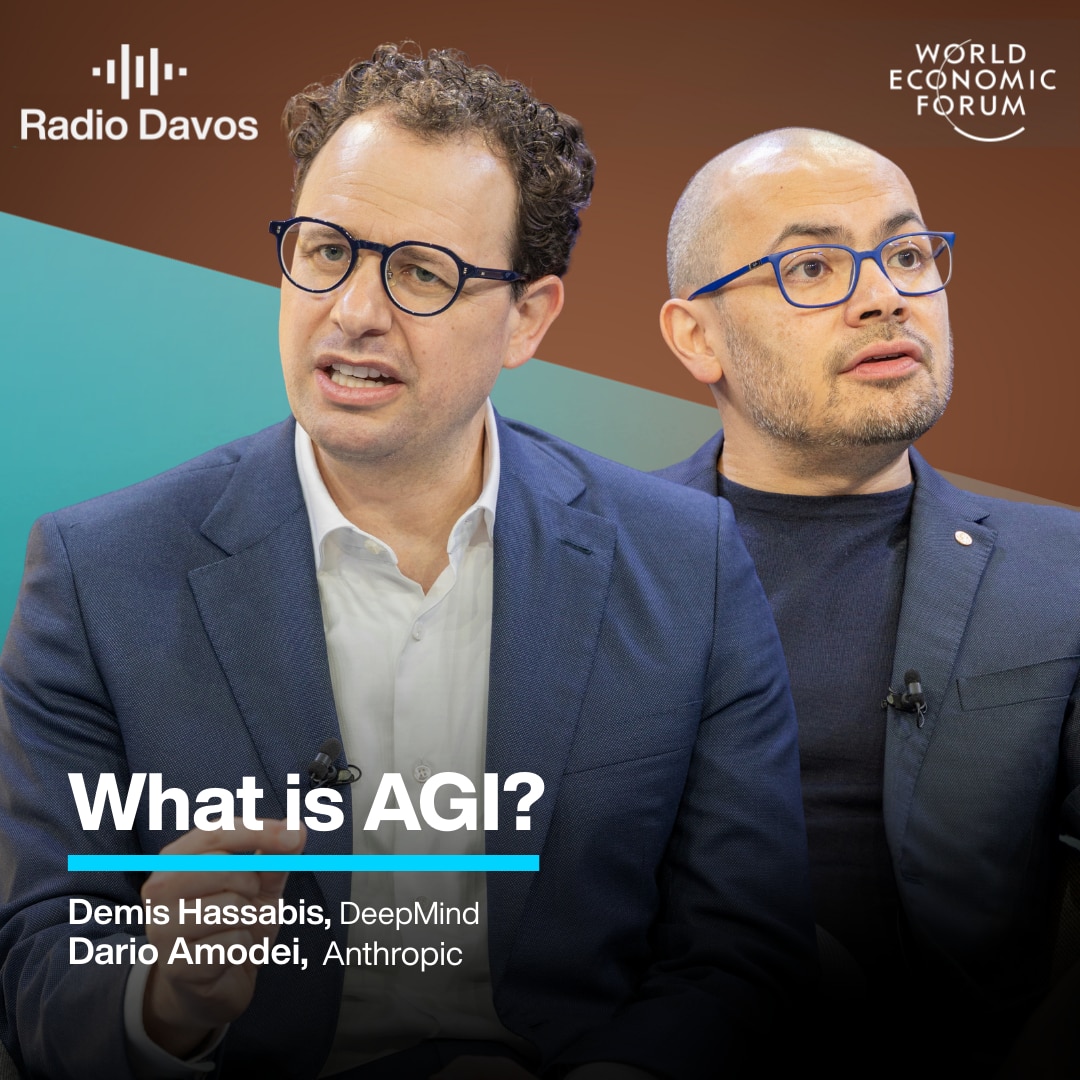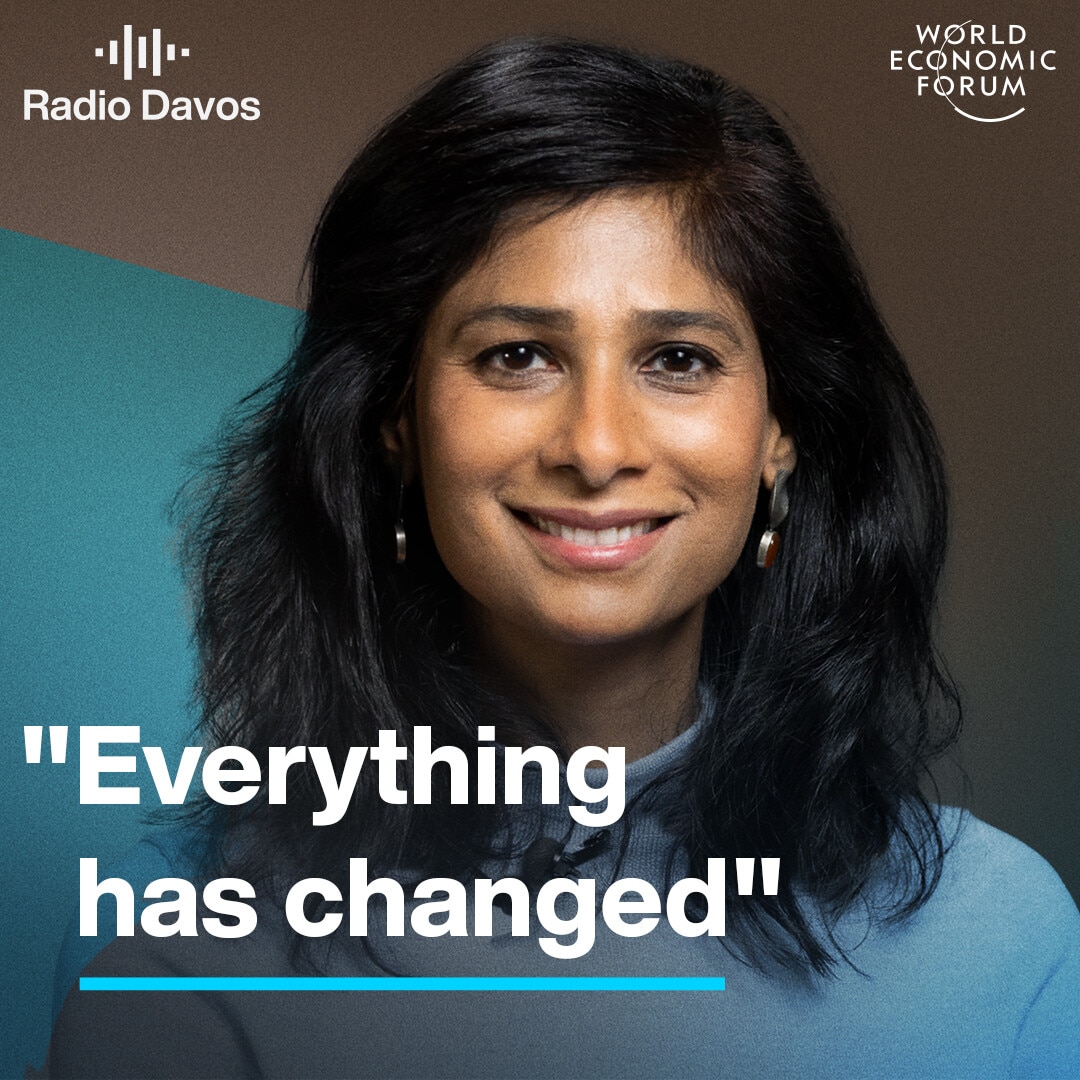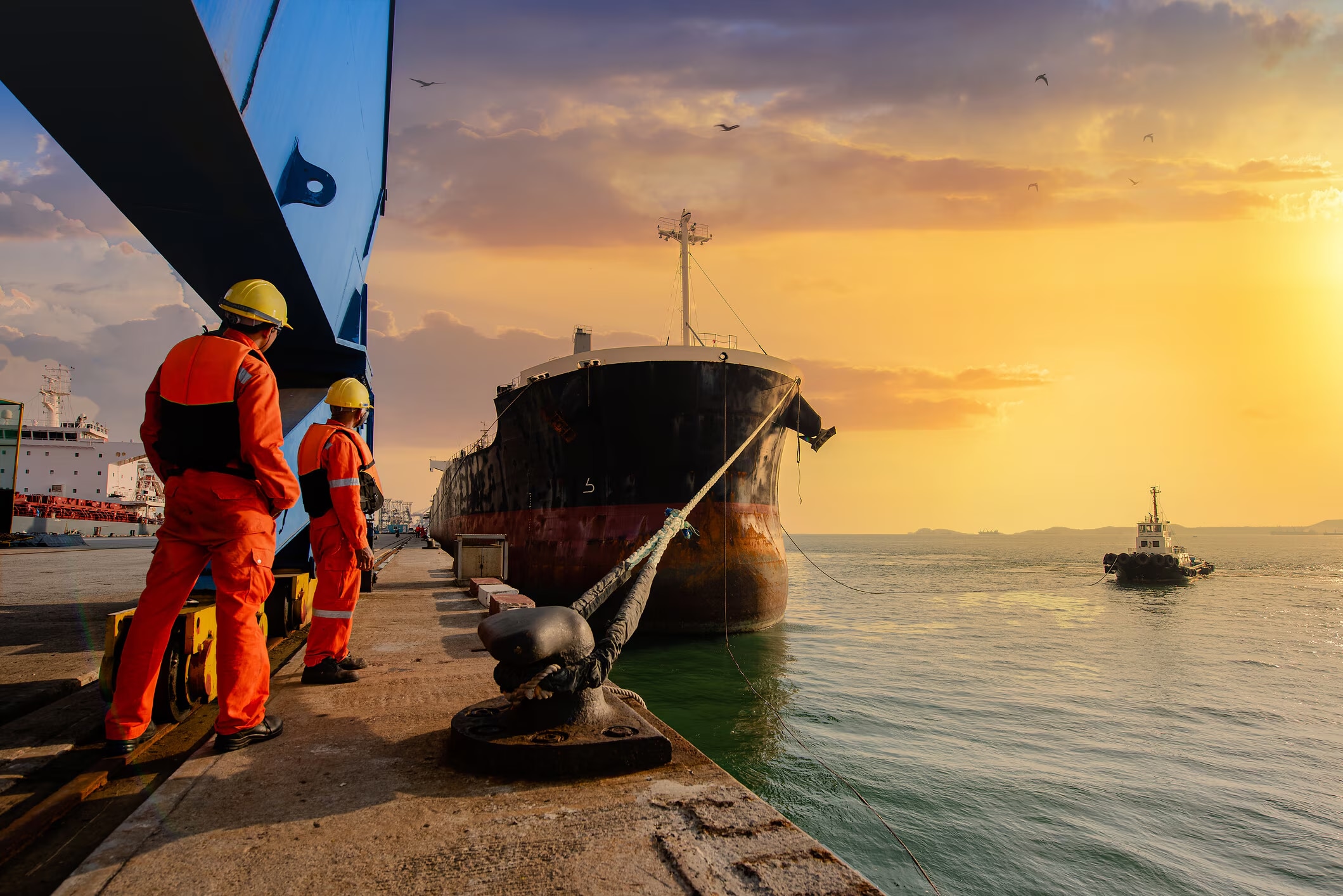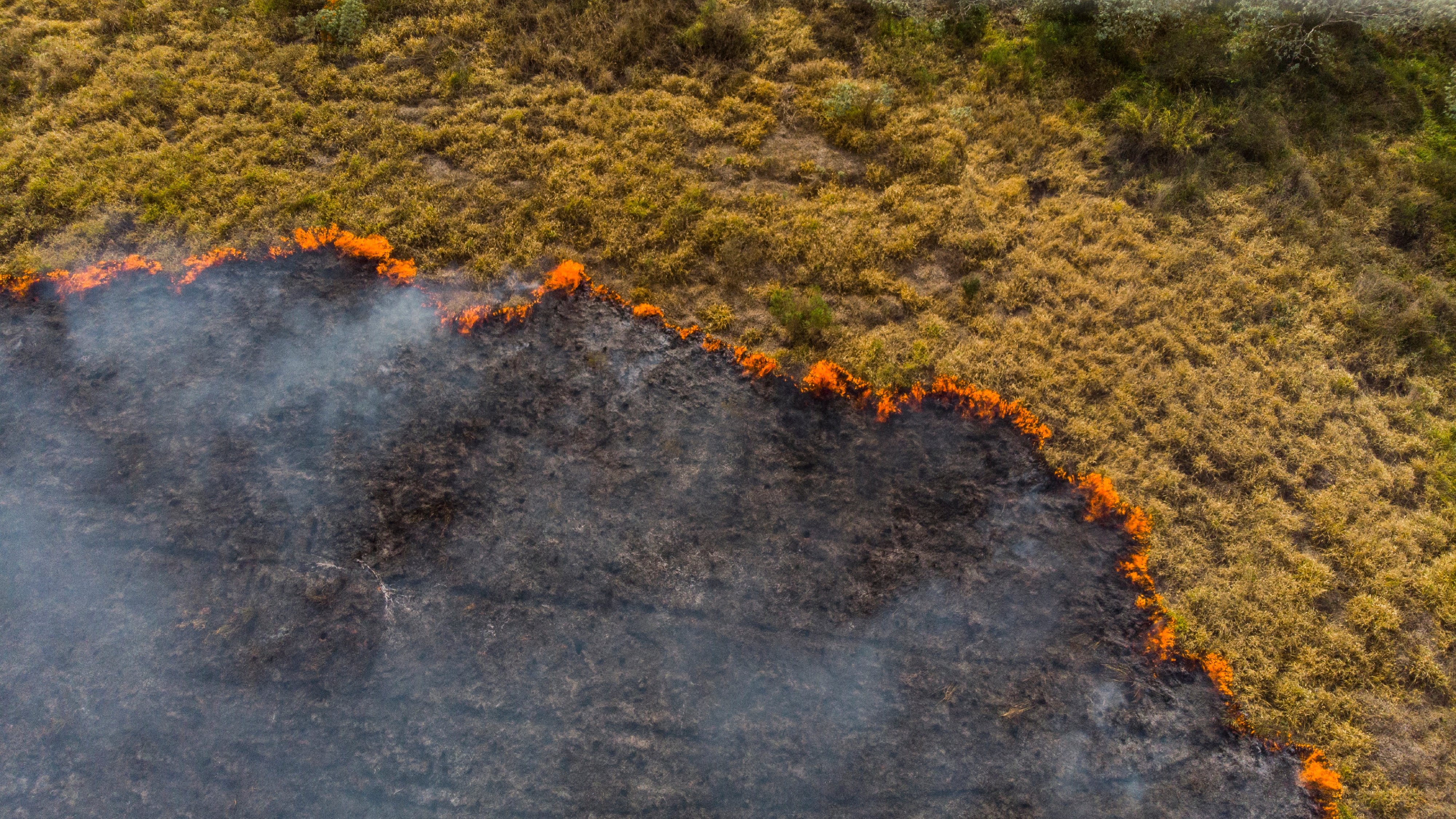It was ‘no deal’ on a global plastics treaty - so what happens now?
播客文字稿
This transcript has been generated using speech recognition software and may contain errors. Please check its accuracy against the audio.
Inger Andersen, executive director, UN Environment Programme (UNEP): We did not arrive where we wanted to arrive, but I also believe that everybody came here with the intention to get the deal done.
Robin Pomeroy, host, Radio Davos: Welcome to Radio Davos, the podcast from the World Economic Forum that looks at the biggest challenges and how we might solve them. This week - it was no deal at the talks on a global treaty to tackle plastics pollution. At the end of negotiations billed as the last chance to reach a deal, here’s what the head of the UN Environment Agency made of it:
Inger Andersen: It is clear that we are living in an era of significant political complexity, we are living in a time of economic challenges, and, obviously, multilateral complexity. But despite those profound challenges that were journeyed, despite the disappointment that we all leave with, we have to accept that significant progress was made.
Robin Pomeroy: On this episode, we get a readout of those talks - what happened, what might happen next, and what does the whole thing say about the state of the world
Clemence Schmid, director, Global Plastics Action Partnership (GPAP): I want to hang on to this hope. More and more countries are realising the size of the issue, continue to seek for agreement, to seek for negotiation and for discussion at the global level, but are also taking concrete action within their national borders.
Robin Pomeroy: Follow Radio Davos wherever you get your podcasts, or visit wef.ch/podcasts where you will also find our sister programmes, Meet the Leader and Agenda Dialogues.
I’m Robin Pomeroy at the World Economic Forum, and with this readout from the plastics treaty talks…
Inger Andersen: This work will not stop because plastic pollution will not stop.
Robin Pomeroy: This is Radio Davos
Welcome back to Radio Davos, the podcast from the World Economic Forum that looks at the biggest challenges and how we might solve them.
Radio Davos has been off for a summer break. But while we were away, over the other side of the lake in Geneva from the World Economic Forum's offices, the corridors and meeting rooms of the United Nations were busy with diplomats from around the world trying to reach an agreement on a treaty to solve the global problem of plastics pollution.
On this episode, we will be talking to someone who can give us a readout of those talks. Spoiler alert, there was no deal. And tell us what happens next. She is head of the Global Plastic Action Partnership, GPAP, which is the World Economic Forum's multi-stakeholder platform dedicated to translating commitments to reduce plastic pollution and waste into concrete action, Clemence Schmid. Clemence, how are you?
Clemence Schmid: Great, Robin. Thank you for having me.
Robin Pomeroy: Thank you for joining us. You were just asking me before we started, whether I was over in the United Nations, the Palais des Nation. I absolutely wasn't, I was on holiday. You were there. Tell us why you were there, why this event was happening at all.
Clemence Schmid: So this round was called INC 5.2, Intergovernmental Negotiation Committee. Five is the number of round, Point-2, because we last met in Busan back in December , which was the first window for this negotiation, and we already couldn't get to an agreement for a global plastic treaty, hence the reconvening this August in Geneva.
Robin Pomeroy: The background to all this is there was a agreement at a global level to pursue a treaty like this to tackle plastic pollution. And that it would be concluded in these five rounds of talks, the fifth one in Busan in South Korea, which was then extended to this one, kind of a second part of that happening here in Geneva. And it was billed as the last chance to get this treaty agreed. Tell us what happened.
Clemence Schmid: So unfortunately we haven't come to an agreement just at that moment in Geneva and to your comparison between the first round and the second round, the meeting has been adjourned which means that it leaves open many options for the future including a potential third round.
Robin Pomeroy: A potential third round, what will decide whether or not that happens?
Clemence Schmid: So I think there are going to be many things which are going to be in play at the moment to decide which direction this will be going. I think the final plenary didn't leave any leads for any of the potential next steps.
I think what we heard is an over proportionate majority of countries wanting to continue the negotiation because to the point you were mentioning before, there is consensus around plastic pollution is an issue and I think that's probably something that has federated many countries back in 2022 when the UNEA resolution to establish this negotiation was voted.
And I think China, the Chinese delegate in the last plenary, put it in a very right words saying tackling plastic pollution, is a much more complex issue than we would have thought.
And therefore this is where we are today.
Robin Pomeroy: UNEA, you mentioned, the United Nations Environment Assembly where it was agreed to pursue this. So it will go back to there now, will it, for the next steps?
Clemence Schmid: So this is part of the option. The United Nations Environmental Assembly happens every two years. So it's now due in December. So this part of potential path forwards. But nothing has been confirmed to date.
Robin Pomeroy: So tell us why there was no agreement at this meeting? For someone coming at this from the outside. It doesn't sound that complicated really to agree, what, let's stop polluting the planet with plastics. I mean, what are the stumbling blocks?
Clemence Schmid: No, and I think you're bringing the right question and the difficult one.
To the point you're making, there is consensus, I think I would also say, among every single one of us individually, that plastic pollution is an issue. And there is also a very big acknowledgement that this is, it is tangible, it exists, it is there. You don't find anyone that would deny that pollution is there out in our environment or that would say it is a good thing or even a neutral thing. So there is fundamental alignment and consensus behind the state of the issue.
Now when we are getting into how to solve it and what are the potential solutions, this is where the positions diverge and obviously you have on one side countries which are disproportionately suffering from plastic pollution, so as a good visual case, small island developing states is a good example. And on the other side, countries whose economies and GDP depend on the production of plastic. And I think those two antagonist positions show you the spread of the potential divergence.
Robin Pomeroy: We've spoken before on the podcast that one of the key points of disagreement, and maybe that's what you were referring to just then, is the difference in approach from countries that would say, let's manage the waste. We can stop it from arriving in rivers and seas, or try and stop it getting into animals and humans. So it's a waste management issue. And others who would say, no, it's also a production issue. We're producing maybe too much and maybe too many of the wrong types of plastic. Is that still a major issue?
Clemence Schmid: It is still a major issue and I think the answers will obviously lie in between those two positions where on one side, if you want to maintain materials and plastic in that case, into the economy, you do have to retain it to prevent it from leakage. So the point of waste management is obviously an important one.
But at the beginning of it, to get an effective waste management system and something that is going to really work in retaining the material and specifically retaining valuable material, we do need to design it in a way that is going to enable that systems to work.
So those two positions need to work together. And currently, this journey hasn't been made within the negotiation.
Robin Pomeroy: Most people have seen a rise in recycling efforts. I mean, for consumers, the most obvious place is food packaging, for example, but of course, plastics are used in all kinds of products that have an end of life. So we talk more about recycling now than we did a generation ago, but still plastic pollution has increased. Where's the disconnect there? Because if we're recycling more and more but pollution keeps going up, there's something that's not working there.
Clemence Schmid: Yes, and I think that's what you're touching on the point. Currently, globally, about 9% of the plastic is recycled, which is very little as part of the total consumption. And on the other side, we know the consumption of plastic keeps increasing.
And there is consumption of plastics that are necessary and that helps us in many different parts of our life, from the medical and health system, up to our goals to manage decarbonization because as you know plastic is a material that is much lighter than anyone so there is there is good consumption and usage of plastic. And then we also have all of the single-use plastic you mentioned packaging, this is sometimes one of them. And our consumptions continue increasing.
So we do need to both manage what we call upstream, which is all of the product design and how do we use plastic in the best sustainable way? How do we consume it in the sustainable way and how to we retain it? How do build the waste management system that is going to enable us to keep it within our economies?
Robin Pomeroy: I know you're head of a fairly wide coalition of members, multi-stakeholder approach that it is what the World Economic Forum does, but I wonder if you're able to say that you as a group, of GPAP, what would be the ideal treaty? I don't know if you are able to that because you represent so many constituents, but I'm going to ask you that anyway. What would be the best thing you-- could hope for. What do you think might be actually possible if there were to be a continuation of these talks?
Clemence Schmid: To your point, it's hard for me to answer what would be the best treaty because also it is not our role. But just to share a little bit about, you mentioned the Global Plastic Action Partnership community. It is a community of 25 countries globally that represents, if you put it in numbers, 20% of the world's population. So this is a sizeable group and all of those countries have taken voluntary steps and measure to tackle plastic pollution in their national capacity with a multi-stakeholder approach.
And GPAP is very happy to be able to support them with methodology and data and on the ground and on-the-ground support.
And in this group of 25 countries, It's almost evenly split 50-50 between countries which identify themselves as part of the high ambition coalition for ending plastic pollution and countries that don't identify themselves as part this group.
So technically you could read at a political level different position in terms of the level of ambition for what would the treaty become. But those countries are all taking the same steps into action. You mentioned translating commitment into concrete and tangible action is what we inspire and aspire to do as GPAP. And when it gets to action, actually, the political positioning is, I don't want to say erased, but at least moves to the second layer. And we see countries taking action independently of their political position.
Robin Pomeroy: So if that is happening anyway, why do we even need a global treaty? What would be the benefit? It's obviously very difficult to achieve. Why don't we just scrap the whole idea and say, well, let's do it country by country or coalitions of the willing and do it that way instead?
Clemence Schmid: I think that's because we also know that plastic pollution knows no border, and at some point regional and global cooperation and collaboration will make the national measures more effective and work faster.
And I think, that type of agreement will be very important not only at the government level but also if you're thinking about our supply chain and the business side of the equation, our supply chains today are global. Consumers don't only consume local product, things needs to move from one place to another. So in that context, having a global framework that enables better effective measure will really help speeding the solutions.
Robin Pomeroy: What might it look like then, if this were to be revived and some kind of consensus could be found? Could you give us a broad outline of what it would do?
Clemence Schmid: It's hard to know before knowing what's the path forward because you mentioned consensus. This is clearly one of the points that have been discussed and raised by some government during the last plenary. Is consensus at all possible or should we move to a different process? I think until we get that path forward and that clarity, it will be quite hard. Also to understand what the content or the framework could look like.
Robin Pomeroy: So the consensus means everyone in the room has to agree, which is remind me, how many countries were present at these talks?
Clemence Schmid: About 180 countries.
Robin Pomeroy: 180 countries, pretty much all the countries in the world, and consensus means no one is saying no. So everyone is either for it or not expressing an opposition, which always makes it very hard to reach an agreement so that you could, in theory, do a majority vote, which is not usually how the United Nations operates. But there's some talk of moving towards that, is there?
Clemence Schmid: There has been some discussion that was transparently, I think, stronger in Busan, so during the first round of negotiation than during that round.
You rightly say consensus, especially on a topic like this, is extremely hard to get to, but also would be extremely powerful. So I think there is this tension that delegates and obviously also all of the institutions that are involved, the United Nations Environmental Programme, the secretariat and the chair from the INC process, have to really weigh the pros and cons for the different potential.
What also you hear a lot is what needs to be agreed and achieved during the establishment of the treaty. As the framework versus what should come down the line into the upcoming COP. And I think there's been a lot of expectation to see many issues solved and discussed during this round of negotiations, also because this is such a pressing topic and such an urgent action that is needed, so there's probably less patience for thinking what could be agreed also down the line. And we call this start and strengthen approach. So what should we start with? What's the good position to have a starting point and what can be worked in the continuous round of negotiation? Because there will be a COP process emanating from this INC process once the treaty is in place.
Robin Pomeroy: A COP process, a conference of the parties. We're familiar with that acronym from the climate change COPs where there's a treaty but the parties to it meet regularly every year or however often it is agreed.
What's the feeling about that now? I think multilateralism is maybe not flavour of the month all over the world right now. There's questions as to how successful the climate COPs are. They've been criticised from both sides, from people who want stronger climate action, from people want weaker climate action. What was your feeling from walking the corridors of the United Nations, about generally the current state of the world when it comes to multilateralism?
Clemence Schmid: Well, it is a broader question, definitely, than just the plastic pollution issue. Saying that this has remained foreign to the negotiation would not be true. Obviously, the state of the world today and the question around multilateralism, but also the geopolitical context that we're living in, has had an influence on the type of discussion, the type of concession, the types of agreement, the red lines, the positions, who advocates for what part, who can identify themselves as a high-ambition coalition or not.
So it has overshadowed part of the discussion as everything happened on those sensitive topics behind closed doors. It's hard for me to comment really on your question, but indeed this was part of the 10 days we just went through.
Robin Pomeroy: Do you think we're lacking a sense of urgency when it comes to plastic pollution? When we talk about climate change, there's this feeling that time is running out to prevent tipping points that could make vast parts of the planet uninhabitable. It's very much an existential threat if you believe the very clear science.
Plastics pollution certainly a few years ago seemed to be very close to the top of the political agenda in many parts of world with horrific pictures of certainly, particularly in the ocean, plastics pollution. Maybe it's fallen away from the agenda a bit and it's, yeah, it's one problem of many in a world where there are wars and there are indeed droughts and floods and apocalyptic scenarios and, plastics pollution, maybe it's just another one of those issues that we'll get around to sorting out at some point.
Do you think that's a fair reflexion of maybe broad public opinion? And if that is, how do you counter that? How do you persuade? Because you're someone and your organisation is something that is pushing for urgent action on what you consider to be a very urgent problem.
Clemence Schmid: I would have a different point of view than what you provocatively put on the table, to be honest, of course. And the discussion also at the very beginning of the discussion back in 2022 did start, to your point, on there is more plastic than fish in the ocean. We need to tackle that problem. It started from an environmental standpoint. I think there has been massive awareness raising also on the different aspects to the pollution.
We now talk about the triple planetary crisis between climate change, biodiversity loss and pollution. There has been, you were referring to science, there is more and more scientific finding that also show that plastic pollution is not just a plastic container or a piece that you find into the environment. But that it sinks into the soils. It has long-term pollution effect. There is health issues related to plastic. I don't want to get everyone worried on this podcast, but you can find scientific evidence when it comes to microplastic pollution, nanoplastic pollution. Their presence in our body, in the air we breathe, in the water we drink.
So this problem is not going away and I want to say, if at all, it is going to increase.
And last point I will make, I mentioned the triple planetary crisis, the interconnection between those issues are also more and more coming top of mind to people you were talking about flooding. If you live in the city that has no waste management and plastic is just lying around, when you get a flash flood, everything will get clogged and you'll get much more issues just because you're not taking care of your plastic pollution.
Robin Pomeroy: The talks in Geneva, obviously the minutiae, we just don't have time to get into, as you say, it's a very complex issue. But for you being there in the plenary sessions, which means when all the countries get together in the big room and countries make their statements, were there any highlights that stood out to you from these talks just now?
Clemence Schmid: Yes, thank you for asking the question because I think from what could be or what could have been perceived as a doom and gloom plenary where we reinforced disappointment, many countries shared that disappointment not to have reached an agreement, I think it was also stated that four key issues are remaining around how do we talk about production and sustainable production levels, how do we talk about chemical of concerns, hinting to chemical pollution, how do we talk about product design in that context, and how do talk about financing.
Those issue remains on the table and haven't reached agreement and consensus. And I think we heard this over and over also on the discussion on which text will be taken as a base for further negotiation.
But I think my personal highlight during that plenary was the very comprehensive statement that the Chinese delegates made during the final plenary, reinforcing China's commitment to multilateralism and discussion and also their willingness to continue to engage into conversation to solve that very issue of plastic pollution.
And I think we also heard a lot of very strong example on work that China is also undertaking at a national level, which I want to hang on to also this hope and more and more countries are realising the size of the issue, continue to seek for agreement, to seek negotiation and for discussion at the global level, but are also taking concrete action within their national borders.
Robin Pomeroy: So what should we look out for now if I'm just a person concerned about this issue and want to find out more and I want to follow any progress that's going to be made in the next few months or I run a business and I wanted to know where the policy might be headed, where should we be looking out for information about where these talks are headed and what may be happening next?
Clemence Schmid: Well, I think first look at the World Economic Forum communication from the from the podcast to the to the article. That is a topic that we continue covering and we continue to surface insight and new findings and also updates on what are the what are the paths forward.
Specifically if you're interested to know what the Global Plastic Action Partnership does in 25 countries, we also have our own website and you're more than welcome to reach out to us to see what's happening on the ground in what could be some of the toughest environment because we're working with 25 countries from the global south, so really working across the full life cycle of plastic.
Robin Pomeroy: Clémence Schmid of the Global of the Global Plastic Action Partnership, thanks very much for joining us on Radio Davos.
Clemence Schmid: Thank you so much for having me.
Robin Pomeroy: For links to find out more about plastics pollution and potential solutions, see the show notes to this episode.
And please follow Radio Davos wherever you get your podcasts and please leave us a rating or review. You can find the back catalogue at wef.ch/podcasts.
This episode was written, presented and produced by me, Robin Pomeroy, with studio production was by Taz Kelleher.
We will be back next week, but for now thanks to you for listening and goodbye.
Scroll down for full podcast transcript - click the ‘Show more’ arrow
A second - and supposedly final - final round of talks to agree a global treaty to tackle plastics pollution this month ended with no deal.
We get a readout of the talks from Clemence Schmid, director of the Global Plastics Action Partnership, who tells us what happened and what might happen next.
Related video:
分享:
更多集:
每周 议程
每周为您呈现推动全球议程的紧要问题(英文)
更多关于 自然与生物多样性 查看全部
Ruth Boumphrey and Alfredo Giron
2026年2月28日
